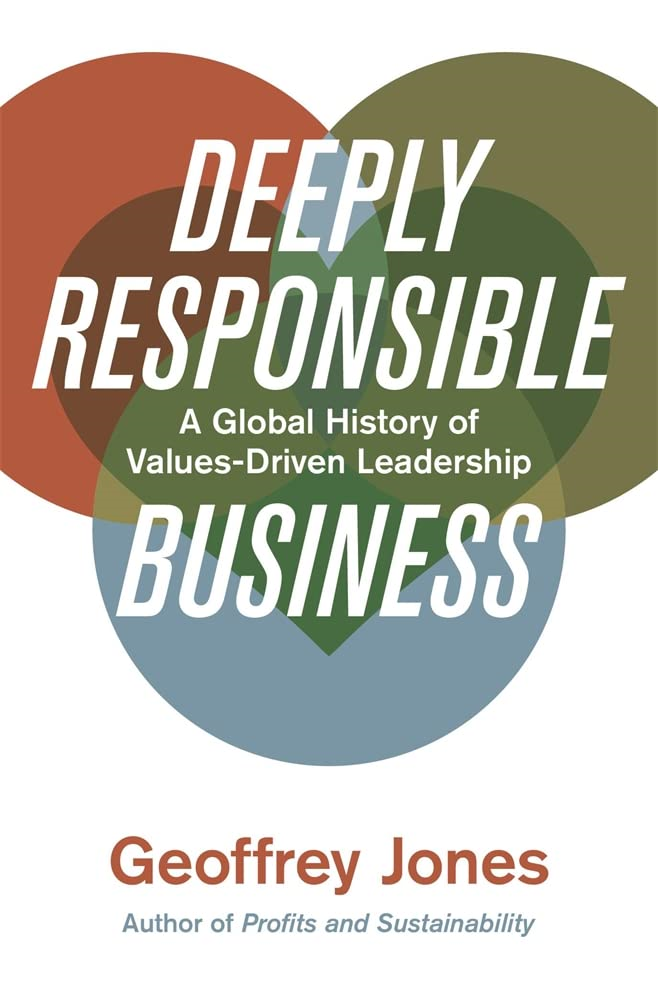
Book Review 2023.05: Deeply Responsible Business, A Global History of Values-driven Leadership, 359 pages, Hardbound, 2023
Received this book a fortnight ago, a gift from a dear friend of mine, who I met just a few months back but was able to bond quickly due to our shared values. Browsing through the book on the way back home on the metro rail, it totally captured my attention, making me drop another interesting book I was reading to complete this book in one go over the last twelve days. Maybe it was my interest in exploring to write a similar book that held me captivated.
This book provides a panoramic view of the alternate corporate world that pursues values beyond and in addition to profits. Covering most parts of the globe apart from the traditional focus on North America and Europe, like Latin America, Africa, India and Japan, the geographical reach is only one part of this breadth. On the other front, the book also saddles the philosophies inspiring different practioners, their impact both on their business and Industry, in addition to their impact on the society and policy making. The attempt of some academicians to influence management education by introducing philosophy and sociology in management schools provides some new insights into this less explored topic. Despite the clear position of the author in advocating for businesses to address social and environmental issues, the book presents a balanced view providing both the positive elements and the short comings in the attempts by the business leaders.
Covering a period of over 200 years, starting from around 1850s to the current day, the book describes both the known advocates of responsible business practices like George Cadbury, Robert Bosch, JN Tata and Anita Roddick, to the lesser know proponents like Shibusawa Eiichi, Kasturbhai Lalbhai, Sanjay Bansal of Ambootia fame among others. A key element of this book is in touching upon the spiritual and philosophical influence of Quakers, Mormons, Jains, Confucius and Mahatma Gandhi among others prominent thinkers. The book ends on a positive note by covering recent initiative B-Corp, for beneficial corporations, a movement that is less than two decades young.
I strongly recommend this book to all readers interested in the corporate world, especially those disillusioned by the outcome from the unbridled pursuit of profits at a great social and environmental cost to the society. In addition to capturing the alternate corporate history in quite some detail, this book with its rich reference section offers the interested readers enough leads to spend a much longer time in deep diving into different aspects of socially conscious businesses. I believe anyone who completes this book will not be left untouched, in each of their role as a business leader, investor, corporate employee or a consumer, and all the roles combined.
Happy reading as we explore for the sensitive new world.

Social Profiles